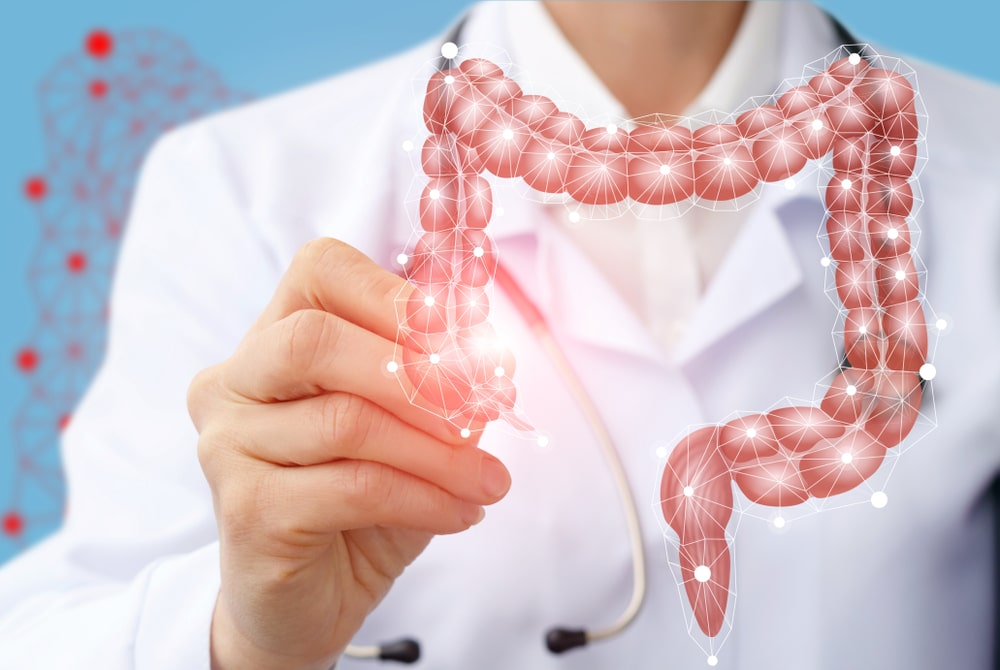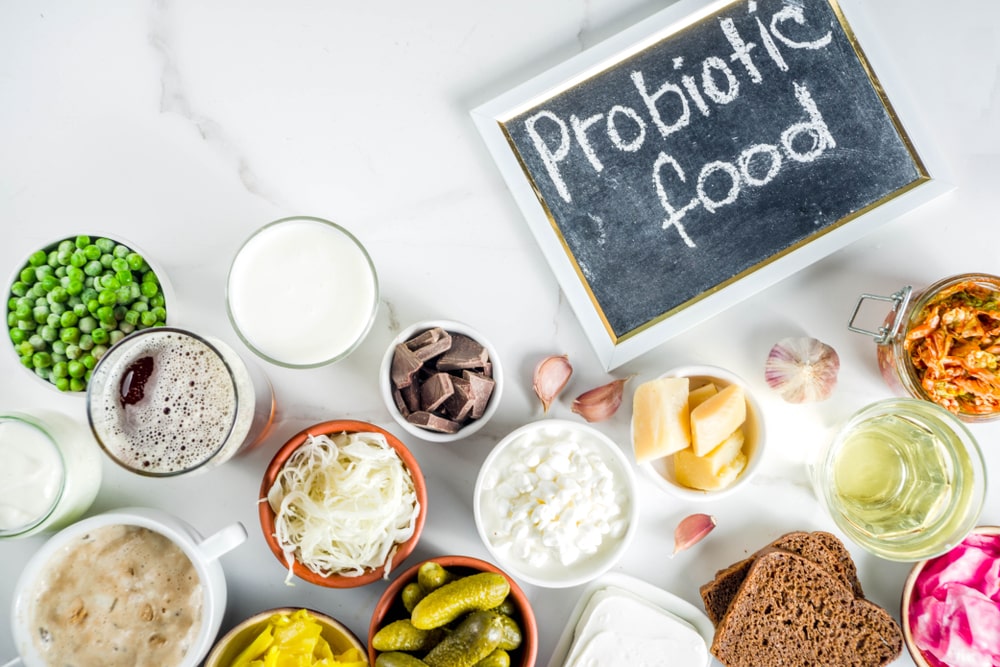How to Improve Gut Health?
You’ve probably heard the phrase “gut health” and are aware of the benefits of having “good” gut health. But what is gut health? It refers to your digestive tract and more about how these microbes affect general health.
Gut health is incredibly important for overall health and well-being. Our digestive system, which includes the stomach, intestines, and colon, is responsible for breaking down and absorbing nutrients from the food we eat. A healthy gut is essential for proper digestion, nutrient absorption, and a strong immune system. But, the question arises: How to improve Gut health?
How to test Gut health?

There are several ways to test gut health. Here are some common methods:
Stool Tests:
Stool tests can be used to analyze the microbiome in the gut and assess the presence of harmful bacteria, parasites, and other pathogens. This test can also provide information about the digestive function, such as the ability to digest fats and absorb nutrients.
Breath Tests:
Breath tests can be used to assess the presence of certain gasses produced by bacteria in the gut. These tests can help diagnose conditions such as small intestine bacterial overgrowth (SIBO) and lactose intolerance.
Blood Tests:
Blood tests can be used to assess inflammation in the gut and the presence of certain antibodies that may indicate autoimmune diseases or other conditions.
Elimination Diets:
An elimination diet involves removing certain foods from the diet for a period of time to see if symptoms improve. This can help identify food intolerances or sensitivities that may be affecting gut health.
Endoscopy and Colonoscopy:
These tests involve inserting a small camera into the digestive tract to assess the health of the gut lining and look for any abnormalities or signs of inflammation.
It’s important to note that testing gut health is not always necessary, and many healthcare professionals may recommend making lifestyle changes to improve gut health without testing.
If you’re experiencing digestive symptoms or suspect that your gut health may be compromised, it’s best to speak with your healthcare provider to determine the best course of action.
Tips on how to improve gut health:
Eat a balanced diet:

Eating a diet that is rich in fiber and nutrients is essential for a healthy gut. Include plenty of fruits, vegetables, whole grains, and lean proteins in your diet.
These kinds of foods, rather than a balanced diet, are recommended for a healthy life.
Not only does it affect the body in a good way, keeping all the organs in good condition and a good immune system, but it also helps to keep the gut healthy.
Fiber-rich foods help promote the growth of beneficial bacteria in the gut, which can improve digestion and nutrient absorption.
Stay hydrated:

Drinking enough water is essential for proper digestion and bowel movements. Aim to drink at least 8-10 glasses of water per day.
You can also drink herbal teas and natural juices to keep yourself hydrated.
It is also advised to drink at least 2 glasses in the morning as soon as we wake up to cleanse the gut lining which in turn, makes the habitat of the gut primed for the future food we will consume.
Reduce stress:

Stress can have a negative impact on gut health. When we are stressed, our body produces hormones that can disrupt digestion and bowel movements. There is a connection between the brain and the gut which is also discussed in the later part of this blog.
Any stress and anxiety nature can disrupt the absorption process and in turn, proves very harmful to the gut and overall body.
Furthermore, it also leads to malnutrition and poor immune response in the body. Practice stress-reducing activities like yoga, meditation, or deep breathing exercises. A calm and relaxed mind makes the gut calmer.
Exercise regularly:

Exercise has been shown to have a positive impact on gut health. Regular physical activity can help improve digestion, reduce inflammation, and boost the immune system.
Aim to exercise for at least 30 minutes daily, five days weekly. Body movements are very necessary to promote good blood supply and pressure in the body.
This helps in the healing of the body tissues that are damaged. Studies have proved that a good workout promotes a cleaner gut and body.
Limit alcohol and processed foods:

Without a doubt, consuming alcohol and processed foods are never your friend. Anything consumed in excess is bad for the body. No one needs any introduction to these kinds of items and stuff about how dangerous they can be to a human being.
Consuming too much alcohol and processed foods can have a negative impact on gut health. These foods can disrupt the balance of beneficial bacteria in the gut and cause inflammation.
Limit your intake of alcohol and processed foods and opt for whole, unprocessed foods instead.
Get enough sleep:

Sleep is essential for overall health and well-being, including gut health. Aim to get 7-9 hours of sleep per night. Lack of sleep can disrupt digestion and bowel movements, leading to constipation or diarrhea.
Sleep-deprived patients should look out for signs in the body and should consult a doctor for their treatment. No treatment should be sought at home regarding sleep deprivation as it can be harmful.
Avoiding caffeine before going to bed, eating light, making the room dark and comfortable, and following a cycle/schedule are some of the quick hacks to improve sleep.
Consider probiotics and prebiotics:

Probiotics are live bacteria that can help improve gut health. They can be found in fermented foods like yogurt, kimchi, and sauerkraut. Prebiotics are types of fiber that feed the beneficial bacteria in the gut.
They can be found in foods like bananas, garlic, and onions. They are natural supplements and not considered medicines so they can be consumed daily and they do not harm the body.
They protect the gut and help to improve gut health (if damaged).
Gut Health Medicines:
Prescription drugs are also a way to maintain good gut health. A few of the medicines called Mesalamine, sometimes called 5-aminosalicylic acid (5-ASA), are used to treat ulcerative colitis.
It is typically used to elicit or sustain remission in ulcerative colitis patients with mild to moderate activity. Another drug used in Inflammatory bowel disease a.k.a. Crohn’s disease, which is mild to moderately active, is treated with Budesonide.
This medication reduces inflammation and illness symptoms by acting inside the intestines (bowels). Additionally, it aids in preventing the return of Crohn’s disease symptoms.
Why is Gut Health important?

Your gut sometimes referred to as your digestive system or gastrointestinal (GI) system, is responsible for digesting and absorbing nutrients from the food you eat. Your body uses these nutrients to fuel and maintain itself.
“The gut plays a huge role in the health and well-being of our bodies,” explains Alicia Romano, a specialized clinical dietitian at Tufts Medical Centre in Boston and a representative for the Academy of Nutrition and Dietetics.”
The gut is in tight connection with the brain, playing a constant game of telephone and regulating a range of aspects, including immunological activity, GI muscle contractions, and fluid production, in addition to digesting food and absorbing nutrients. Additionally, the immune system of the body depends heavily on the gut, where more than 70% of immune cells are found.
Is there a link between Gut health and Mental health?

YES! There is a link and we would like to call it: “The Brain-Gut Relation”. Pay attention to the relationship between your stomach and brain because it may play a role in your mental health and digestive issues.
Yes, there is a strong link between gut health and mental health. The gut and the brain are connected through what is known as the gut-brain axis. This connection allows the gut to communicate with the brain, and vice versa.
Furthermore, studies have found that changes in the gut microbiome, such as an imbalance of beneficial and harmful bacteria, can lead to changes in brain function and behavior. For example, individuals with certain psychiatric conditions, such as depression and anxiety, have been found to have an altered gut microbiome.
Overall, the link between gut health and mental health is an essential area of research, and there is growing evidence to suggest that taking care of your gut can have significant benefits for both your physical and mental health.
One must be wondering why gut health is so important. It’s interesting to note that your gut flora is influenced by the stuff you eat.
Your body is impacted by the development of your microbiome in a variety of ways, including:
Digestion and Nutrient Absorption:
The gut is responsible for breaking down food into smaller molecules that can be absorbed and utilized by the body. When the gut is functioning properly, it ensures that nutrients from the food we eat are absorbed and utilized efficiently.
Immune System Function:
A healthy gut is essential for a strong immune system, as it helps to prevent harmful bacteria and toxins from entering the bloodstream.
Mood and Mental Health:
The gut is often called the “second brain” because it contains a complex network of neurons that communicate with the brain.
Inflammation:
Chronic inflammation in the gut has been linked to several health conditions, including inflammatory bowel disease (IBD), autoimmune diseases, and even cancer. A healthy gut can help reduce inflammation throughout the body.
Disease Prevention:
Research has shown that a healthy gut microbiome, which is the collection of microorganisms that live in the gut, is essential for disease prevention. An imbalance of beneficial and harmful bacteria in the gut has been linked to several health conditions, including obesity, diabetes, and cardiovascular disease.
Overall, gut health is important for maintaining overall health and well-being. Taking care of your gut through a healthy diet is one of the key features which can be achieved by consuming Probiotics.
Probiotics to the rescue:

Probiotics are described as “live microorganisms that, when administered in adequate amounts, confer a health benefit on the host” by the World Health Organisation. Natural sources of probiotics include foods like fermented yogurt and kimchi.
They can also be present in your gut, where they play a role in a number of vital biological functions like vitamin synthesis, mood regulation, digestion, and immunological performance.
Potentially dangerous bacteria that may otherwise proliferate in your gut as a result of an infection or antibiotic use are balanced by Lactobacillus acidophilus. It is considered as the best probiotic for gut health.
A few of the Gut Health supplements are:
- YourBiology (Best for women)
- Biotics 8 (Best for men)
- 1MD Complete Probiotics Platinum.
- VitaPost Probiotic 40-Billion.
- BioTRUST Pro-X10.
- Lactobacillus rhamnosus.
- Bifidobacterium bifidum.
- Culturelle Digestive Health Daily Probiotic.
When gut supplements are too heavy to follow, always remember some “Gut Health Hacks” to maintain a good gut. They are as follows:
- Eating Fermented food regularly.
- Eating a broader spectrum of food variety. Food for gut health can range from beans, legumes to yogurt and kimchi (fermented foods), and whole grains, and probiotics.
- Consume Fish and fish products.
- Restrict artificial sweeteners and Emulsifiers.
- Eat more Fiber.
- Remember to drink water.
- Enough rest between meals.
- Walk more.
- Note down what you eat.
Takeaway:

Trillions of microorganisms in your body have a variety of effects on your health. Your gut flora can have an impact on how fat is stored, how food is absorbed, and whether you feel hungry or satisfied. So keeping a healthy weight may require having gut flora that is in good health.
In conclusion, gut health is an essential aspect of overall health and well-being. By taking steps to improve gut health, such as eating a healthy diet, staying hydrated, exercising regularly, managing stress, and taking probiotics, you can improve your digestion, strengthen your immune system, and reduce your risk of several chronic diseases.
FAQs:
What are the worst foods for gut health?
Processed food, red meat, fried foods, refined grains or sugars, artificial sweeteners, and too much-saturated fats are some worst food categories for the gut.
Is Gut health and weight loss associated?
A diet rich in fiber, prebiotics, and fermented foods that are high in probiotics can support the growth of good bacteria in your gut. It is suggested that weight loss can occur without calorie counting or portion control if you eat for your particular microbiome and metabolism.
Is Kombucha good for gut health?
Antioxidants and probiotics, or living bacteria, found in kombucha and other fermented foods support the health of intestinal cells, enhance immune system performance, and facilitate proper food digestion.
How to restore gut health after antibiotics?
To restore gut health after antibiotics, probiotics and a lot of water are suggested.
When to take l-glutamine for gut health?
L-glutamine is helpful to the intestinal lining to protect the surface that is available for digestion and absorption. The best way to protect the gut lining for people with leaky gut, malabsorption, or inflammatory bowel illness (IBS, Crohn’s, Ulcerative Colitis) is to take L-glutamine supplements as they will form a protective layer around the stomach lining. The ideal time to take the medicine is 10-15 minutes prior to a meal. It can be consumed 2-3 times as per the meals taken.
How to improve gut health naturally?
It can be achieved by following a plant-based diet that includes fiber from colorful fruits and vegetables and fermented foods, getting enough sleep, and controlling your stress levels. Start small with diet adjustments if you wish to lead a healthier lifestyle, then progress.

